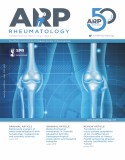Translation and cross-cultural adaptation of the modified Short QUestionnaire to Assess Health-enhancing physical activity (mSQUASH) into Turkish
Authors
Gizem Ayan; Sofia Ramiro; Fernando M Santos; Anneke Spoorenberg; Suzanne Arends; Levent Kilic;
Aims
The aim was to translate and cross-culturally adapt the modified Short Questionnaire to Assess Health-enhancing physical activity (mSQUASH) into Turkish
Methods
The mSQUASH was translated into Turkish and backward-translation into Dutch was performed afterwards using the Beaton method. After the Turkish version was reviewed and revised by an expert committee that included translators, two patients and the research team a pre-final version was produced. The-pre final version then entered a field-test with cognitive debriefing in 10 patients with axSpA. The final result was the Turkish mSQUASH version.
Results
The translation process went without difficulties. Small discrepancies were either resolved during the synthesis or expert consensus meetings. Mean (SD) time to complete the mSQUASH was 6.1 (2.4) minutes in field-test procedure. The cognitive debriefing showed that the items of the Turkish mSQUASH were clear, relevant, easy to understand and easy to complete. None of the patients reported that an important aspect of physical activity was missing from the questionnaire items. Patients raised the concern that not all sport examples were culturally suitable; tennis was replaced by volleyball and basketball after the cognitive debriefing, to make it more appropriate to the Turkish culture.
Conclusion
The final Turkish version of the mSQUASH showed acceptable linguistic and field validity for use in both clinical practice and research. However, further assessment of the psychometric properties (validity and reliability) of the Turkish version of the mSQUASH is needed before it can be implemented.
Gizem Ayan
Department of Medicine, Division of Rheumatology, Ankara-TurkeyHacettepe University
Sofia Ramiro
Department of Rheumatology, Leiden University Medical Center, Leiden, the Netherlands
Fernando M Santos
Rheumatology Department, CEDOC, NOVA Medical School, Universidade NOVA de Lisboa, Lisbon, Portugal; Centro Hospitalar de Lisboa Ocidental, Hospital de Egas Moniz, Lisboa, Portugal.
Anneke Spoorenberg
Department of Rheumatology & Clinical Immunology, University Medical Center Groningen, University of Groningen, the Netherlands.
Suzanne Arends
Department of Rheumatology & Clinical Immunology, University Medical Center Groningen, University of Groningen, the Netherlands.
Levent Kilic
Department of Medicine, Division of Rheumatology, Ankara-Turkey, Hacettepe University
Department of Medicine, Division of Rheumatology, Ankara-TurkeyHacettepe University
Sofia Ramiro
Department of Rheumatology, Leiden University Medical Center, Leiden, the Netherlands
Fernando M Santos
Rheumatology Department, CEDOC, NOVA Medical School, Universidade NOVA de Lisboa, Lisbon, Portugal; Centro Hospitalar de Lisboa Ocidental, Hospital de Egas Moniz, Lisboa, Portugal.
Anneke Spoorenberg
Department of Rheumatology & Clinical Immunology, University Medical Center Groningen, University of Groningen, the Netherlands.
Suzanne Arends
Department of Rheumatology & Clinical Immunology, University Medical Center Groningen, University of Groningen, the Netherlands.
Levent Kilic
Department of Medicine, Division of Rheumatology, Ankara-Turkey, Hacettepe University





